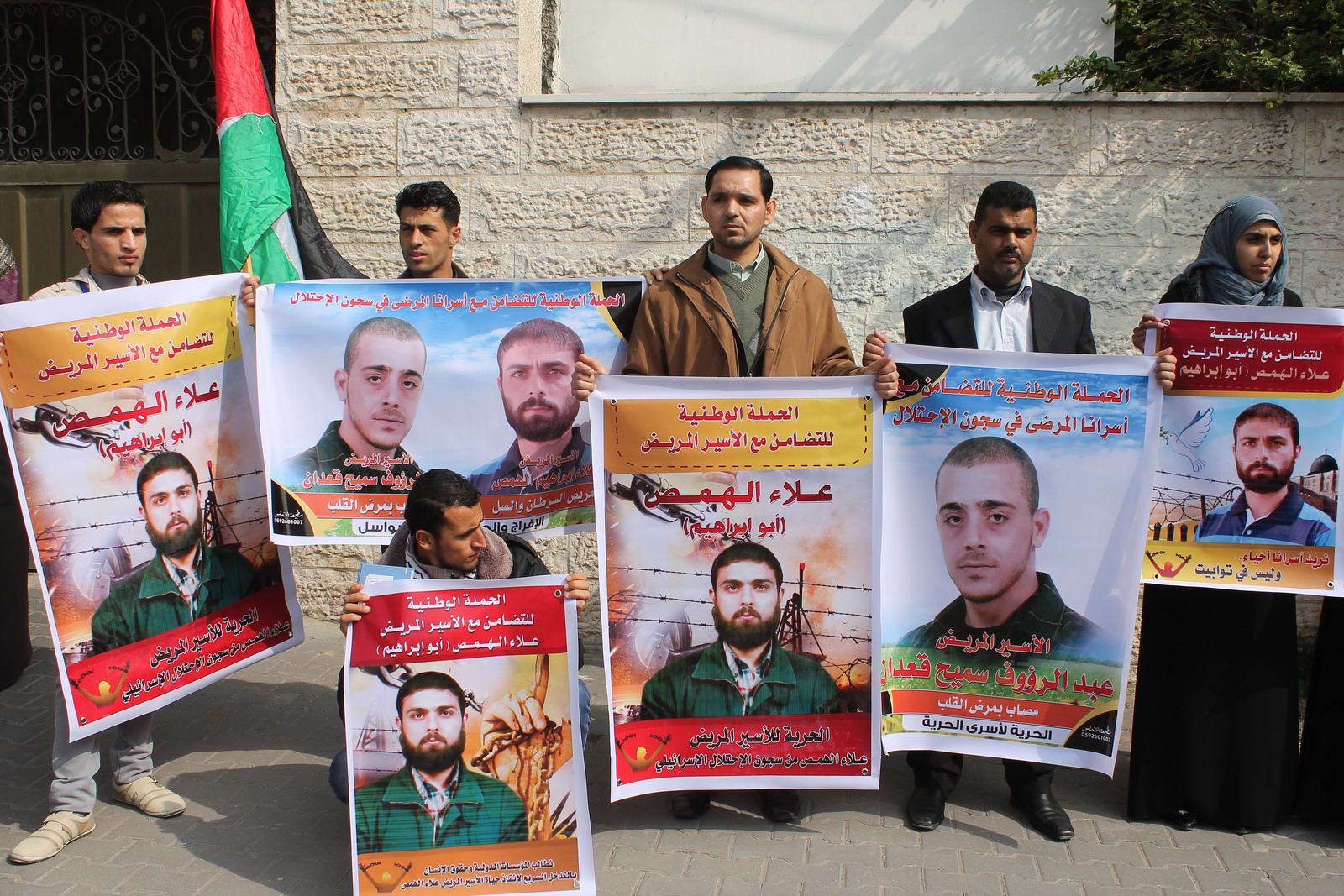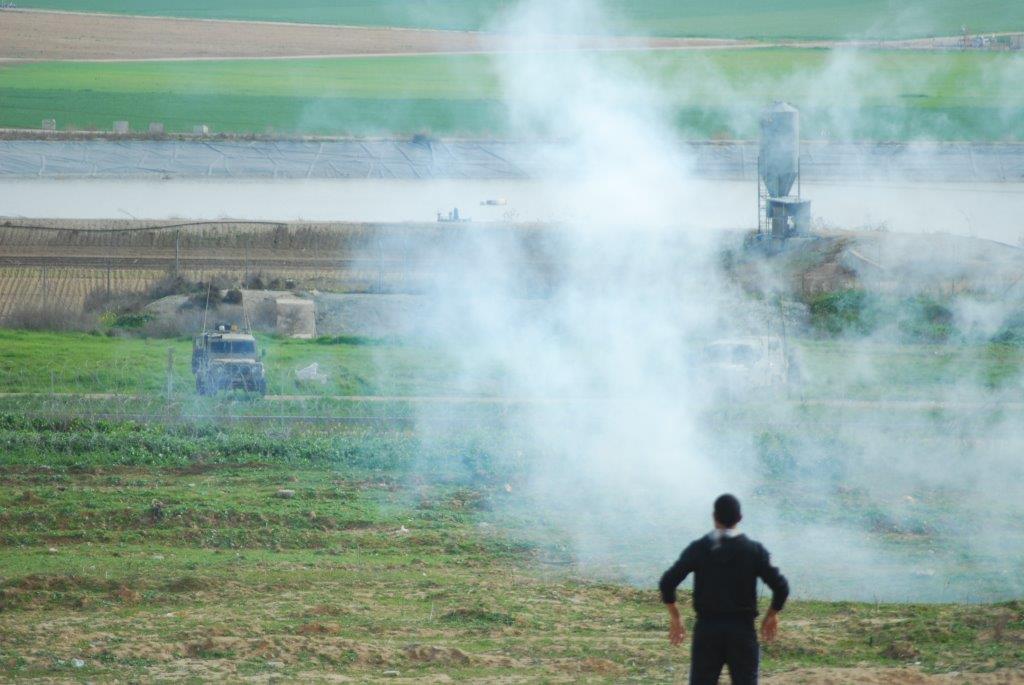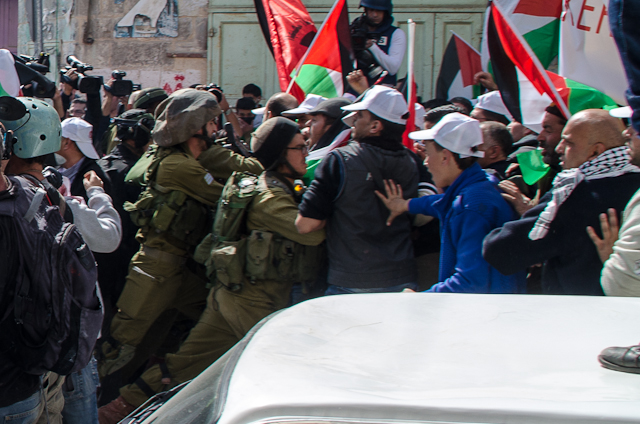Tag: Demonstration
-
PHOTOS: Palestinians rally in Gaza for hunger-striking and sick detainees
2nd March 2014 | International Solidarity Movement, Gaza Team | Gaza, Occupied Palestine In recent weeks, protests for both sick Palestinian detainees and those engaging in long-term hunger strikes have increased in the Gaza Strip. Last Monday morning, following a regular weekly sit-in in the International Committee of the Red Cross’ Gaza office, demonstrators rallied…
-
Video and photos: Israeli bullets and tear gas target popular resistance in Gaza
25th February 2014 | International Solidarity Movement, Charlie Andreasson | Gaza, Occupied Palestine (Video by Marco Varasio) At al-Shifa hospital Mohammed Helles, age 14, is laying in a coma with an uncertain outcome after he was shot, with what appeared, to be a tear-gas canister in the head and parts of it penetrated his brain. He had…
-
Fifth annual Open Shuhada Street demonstration in Hebron
21st February 2014 | International Solidarity Movement, Hebron Team | Hebron, Occupied Palestine The fifth annual “Open Shuhada Street” campaign took place on Friday the 21st of February in Hebron. Five people were arrested and 13 treated after being shot by rubber-coated steel bullets during a peaceful demonstration to open Shuhada Street for Palestinians. On the 21st of…



